Once in a while you come across books that inform and educate readers about important yet less-known topics with immense inspirational quality to each of their chapters. Yearning for Normal (Tate Publishing, 2013) by Susan Ellison Busch is one such book telling the story of a mother having a son born with Deletion 22q.11 – a genetic disorder creating a syndrome of developmental issues in the patient. The book tells the story of the first 30 years of her son Mike’s life. It is not the end of the story though; the saga continues.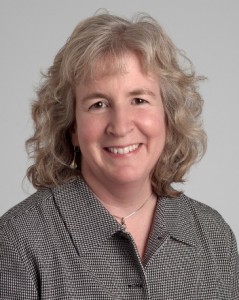
Susan Ellison Busch is currently employed as a nurse practitioner in the department of nephrology at the Cleveland Clinic Foundation after recently quitting teaching in the Adult Nurse Practitioner program at Kent State University in order to devote more time to writing. She is passionate about nursing and health care and about God. In her spare time, she practices yoga, plays tennis, and rides her horse in the woods. I have the pleasure of having Susan Ellison Busch for an interview about this syndrome and her story of its impact on her life as a mother.
Ernest: Thank you Susan for taking time for this correspondence. I can’t help saying that yours is a very moving and uplifting story of a mother’s journey. Let’s start by looking at this genetic condition Mike was diagnosed with. What is it and why does it sound so obscure, at least to me?
Susan E. Busch: Not only has the average person not heard of it, but many health care providers, teachers, and therapists who work with these individuals haven’t heard of it either. That is a major problem. One of the reasons I wrote the book is to help bring public awareness to Deletion 22q.11 Syndrome. It is estimated to be almost as common as Down syndrome. The explanation for its obscurity is that while people with Down syndrome share many classic features, there is a wide variety of manifestations possible with Deletion 22q.11. In fact before 1993, when the test for this deletion became available, people with Deletion 22q.11 could have been diagnosed with a variety of syndromes. There were at least eight syndromes identified. It is like the classic tale of the blind men encountering the elephant. One blind man grabbed and described the tusk, the other the ear, the other the nose, and the other the tail. They thought they were describing different things, not realizing that it was just one big elephant. Other common names for this deletion include DiGeorge syndrome and Velocardiofacial syndrome (VCFS). These names are still in use, but there is a movement to come to a common understanding and name for the syndrome. I suspect that 22.11 Deletion Syndrome will be the agreed upon term in the end, which is why I used this name in my book.
A person with Deletion 22q.11 is missing a tiny fragment of chromosome 22. The numbers 22q.11 give the address of the missing fragment (chromosome 22, p arm, band 11). That tiny amount of missing genetic material has drastic health repercussions for individuals living with this deletion. In fact there are over 180 medical problems identified currently. Luckily no one individual has all of them. The most common symptoms are cardiac problems, immune problems and cleft palate.
Ernest: How many cases of this Deletion Syndrome have you known, in person or via other information sources, besides Mike’s?
Susan E. Busch: I have known numerous people with this 22q.11 Deletion Syndrome, mostly because I have attended local and national conferences about it and families flock to these conferences to learn all they can to help their children. Because I am the mother of a son with Deletion 22q.11, I am very sensitive in recognizing it in people that I meet also. Whenever I have given talks to nurses about the syndrome, people come up to me afterwards saying they think they know someone who has it but hasn’t been diagnosed. This syndrome is thought to occur equally in boys and girls, and it occurs in all races. It is considered a de novo deletion in the fact that most of the time it isn’t inherited; it is just a mistake in the chromosome. However, once a person has the deletion, there is a 50-50 chance of passing it on to their offspring.
Ernest: After a diagnosis is made, do doctors and parents have to focus primarily on symptomatic treatments?
Susan E. Busch: There is no cure for Deletion 22q.11; no way at this point in time to replace the missing genes. Health care providers focus mainly on symptomatic treatments for whatever problems the person is experiencing. There are many problems and many treatments. There can be cardiac surgery, cleft palate surgery, feeding tubes, surgery for club feet and scoliosis. Too many varied interventions to even list here. Not only are there medical and surgical interventions, but there are special interventions for behavior, anxiety, speech, and education.
Ernest: But the major intervention falls in the psychological and/or psychiatric realm; is it?
Susan E. Busch: Even though Deletion 22q.11 is the only known genetic cause of psychiatric illness, most individuals with Deletion 22q.11 do not develop severe psychiatric illness. The incidence of psychotic disorders is approximately 30% of people with Deletion 22q.11. Usually the psychotic disorders emerge in adolescence and early adulthood. More common psychiatric illnesses found among people with the deletion include anxiety and depression which can occur at any age. Some of the missing genes code for important enzymes involved in the regulation of neurotransmitters in the brain, which are important in regulating mood and thought. People with Deletion 22q.11 who develop psychiatric symptoms are treated with the usual range of psychiatric medications and psychosocial interventions; however scientists are looking for more targeted interventions. One such intervention is the use of Demser. This is an old blood pressure medication which acts like one of the missing enzymes. From what I understand, the research using this medication has stalled due to lack of funding. This is a shame because many individuals treated with it benefitted greatly.
Ernest: You draw attention to some very important issues with the medical system where your instinctive or motherly as well as your professional observations as a nurse were ignored by those in charge of Mike’s treatment. What room for reform you see in the medical system in cases as Mike’s?
Susan E. Busch: There is a great need for reform in many areas of the health care system today. Books have been written about it. If I were going to focus on just one thing though, it is that medical and nursing students need to be taught the art of listening to their patients. This value also needs to be inculcated in the health care system as a whole. Currently time, efficiency, and money are the overriding values. Providers are often penalized for spending the extra time necessary to really listen to their patients.
Another big area for reform is how medical research is funded. Currently, most funding for medical research is provided by pharmaceutical companies trying to develop a new drug where they can make the most profit. The end result is just another expensive drug on the market alongside 10 similar medications. Basic medical knowledge and understanding isn’t advancing as it should. Research is needed in areas of cause and prevention of diseases, alternative medicine, and treatment of rare diseases, but funding is limited.
Ernest: Since this condition is so hard to diagnose, based on your own experience, what would you ask parents or guardians, or medical professionals to watch for so as not to miss considering to test the patient for this syndrome?
Susan E. Busch: They have started, at least in the major medical centers, to test any baby born with a cardiac defect for Deletion 22q.11. However, a lot of babies will be missed since only about 40% of people with 22q Deletion have heart problems. It is difficult to name just a few things to look for because there is such a wide and varied range of possible medical problems. Here is the link to the VCFS fact sheet which lists 180 conditions often observed.
It can be helpful to review the sheet and if a person displays more that 3-4 features, it may be worth having them tested.
Sometimes as babies grow into children and adults, they may develop more features of Deletion 22q.11, making it easier to recognize. Common problems in infancy that may indicate a 22q.11 Deletion include: failure to thrive, poor muscle tone, frequent infections, palate abnormalities, low calcium levels in the blood, and autoimmune disorders. In childhood, most of these children have non-verbal learning difficulties meaning they have good verbal and memory skills but lack mathematic and abstract thinking abilities. Most are also developmentally disabled. There are also deficiencies in social skills identified in this age group. In adulthood, some individuals are diagnosed when they have a child with Deletion 22q.11 or when they develop psychiatric disorders.
Ernest: Being a mom, you had to be there for Mike but also for your other kids. Did having such a challenging condition in the family impact your relationship with other children of yours?
Susan E. Busch: When I read this question, I called my oldest son Ben and asked him if he felt neglected growing up because so much attention was focused on Mike. He replied with a chuckle that he felt neglected even before Mike was born. (He was only 21 months old when Mike was born.) See what I have to deal with? It is difficult to get the true story from my sons’ viewpoints.
Someone once said to me that having a disabled child always makes for a dysfunctional family. We were dysfunctional in stages, developmentally. When Mike was a baby, with his stopping breathing, frequent ambulance rides, and hospitalizations, both my husband and I lived in a chronic anxiety state. We didn’t sit down and play cars and trucks with Mike’s older brother as frequently as we did before Mike was born. It was difficult to relax and just enjoy our sons.
As Mike grew older and his health improved, there were different issues to navigate around. In an effort to do things together as a family, we were limited in our options. Mike couldn’t enjoy many activities that families do together. We avoided many of them because we didn’t want Mike to feel left out or act out. Amusement parks were stressful for him; he hated canoe rides or boats. He didn’t enjoy concerts, plays, or museums. He couldn’t play cards or enjoy board games. On the other hand, since our sons were close to the same age, they had fun playing together. There were many days filled with laughter and fun. We all enjoyed vacations at the beach and Mike enjoyed the car rides most of all. We tried to give all our sons attention, but Mike always got the most because of all his issues. I spent hours with Mike in doctor’s offices, therapist’s offices, special education testing, and meetings. I don’t think Mike’s brothers were jealous of or wanted that type of attention. Mike didn’t want that kind of attention either; he just wanted to be normal, just an average guy.
Adolescence was the most stressful time for all of us. Mike started displaying many psychiatric symptoms. We didn’t know what to do. Mike often displayed behaviors that his brothers (and his parents) didn’t understand. I think Mike’s brothers thought and felt many times that I let Mike get away with behaviors they would never do. I think sometimes they were embarrassed by him, other times they grieved over his struggles. Both his brothers acted out during this time and got involved with drugs and alcohol. There may have been other causative factors such as their high school peer group, but I suspect the stress of Mike’s psychiatric problems contributed to their inclinations. At the time, I often wondered and felt that if I had possessed more wisdom and skill; things would have gone more smoothly. We were flying blind. We didn’t know anyone who had been though what we were going through. There are a lot of 22q centers opening up these days that provide groups of doctors and specialists to help with all the issues caused by Deletion 22q.11. I hope they provide a lot of anticipatory guidance and support to parents whose children are entering adolescence.
People always worry about the siblings suffering in a family with a disabled child, but there is hope. What Mike’s two brothers suffered was also an advantage. Both of his brothers are successful adults, one is a lawyer and the other is working on his PhD in history. Both men are wise and compassionate beyond their years. I suspect this is because they had Mike as their brother.
Ernest: And what about your role as a wife? How the stress takes a toll on the relationship with one’s partner?
Susan E. Busch: Having a disabled child added to the stress of our marriage and gave us more things to worry about, argue about, and disagree over than the average married couple. What kept us together was faith in God and a commitment to make the marriage work. In the working it out over the years, we learned unconditional love for each other and for ourselves. Today my husband is my best friend and close partner. We still argue about things, but there is no one in this world that shares the same history and stories that we do. Sometimes we communicate worlds with just a glance and a smirk.
Ernest: Your story has a strong feel of faith to it. In fact you mention a few instances where you kind of directly witnessed divine help saving you and Mike. Did you ever feel that the higher power or god/supreme being was testing you via Mike’s condition?
Susan E. Busch: Suffering is a mystery. I don’t think God sends specific trials to test us though. Grief and suffering are random and universal; part of the package that comes with living. No one who lives this life long enough can escape suffering and sorrow.
When I was a teenager, I learned to set time aside every day to pray. That practice enabled me to walk through this life knowing God’s presence and strength with me through everything. God is not somewhere in the sky testing us. God lives in me and I live in God.
Another source of strength has been being part of a Christian community. There is no way to quantify the amount of support and encouragement I received from brothers and sisters in Christ. When I couldn’t pray, I felt their prayers.
The main source of my suffering was having a son who suffered. I suffered when he did. I believe it is the same with God. When I was crying at Mike’s bedside in the burn unit, I knew that God was crying with me as He held me. I think that is the real meaning of Jesus’ suffering and death on the cross. Jesus showed us how God really is. God suffers with us when we suffer, and weeps with us when we weep. In offering forgiveness to those who beat and tortured him, He showed the way to turn suffering into love.
Ernest: To conclude, what have you gained in this difficult journey that you share in Yearning for Normal?
Susan E. Busch: Mike has taken me to places in the heart and shown me worlds that I would not have known had he not taken me there. Because of Mike, I have become a better nurse practitioner. I listen better. I see more things and am willing to go out of my way to help my patients. I understand their anxieties.
I have learned that everything that happens in life, whether difficult or joyful, is temporary. I love and appreciate life more as a whole in all its manifestations. Each day is a gift.
I am less judgmental of others. I understand that there is usually a story I haven’t heard yet behind their behaviors. I used to be a perfectionist. Mike has taught me to accept and even love mess and confusion.
I am more accepting of myself and others. I used to be a little snob, thinking that people with developmental disabilities were boring and that only intelligent people were interesting. That prejudice had been erased. I have such joy hanging around people with developmental disabilities. We are all disabled. I have learned to forgive others, myself, and God.
I am still learning, still on a journey.
Ernest: Susan thank you so much for sharing your thoughts. Again I would say that yours is one of the most inspiring books I have read to date. And I feel every person who can read must read it.
Susan E. Busch: And thank you so much for your interest in this book and for interviewing me!
Read a review of Yearning for Normal on Words Matters!
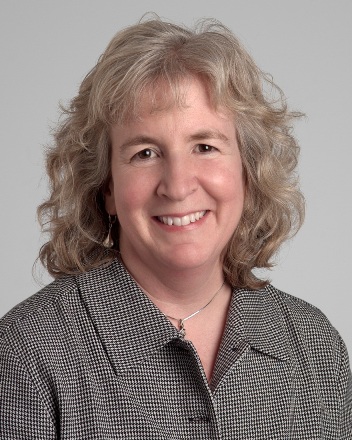
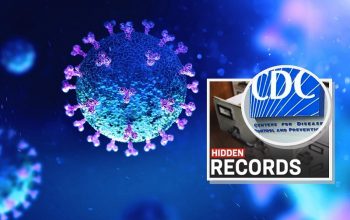
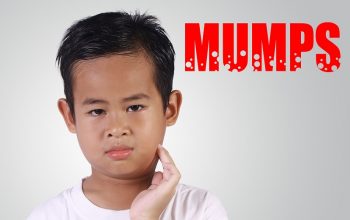
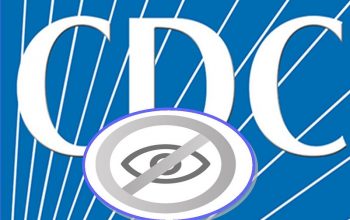
Passionate people who learn and share their research in an open debate to make change focus to cause a change. Word Matters!
Hi. Very interested if you had success with demser. We just received it and are going to try it. My 19 year old son has 22q
Thank you
Chris.